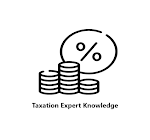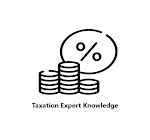Navigating the world of CBD licensing in New York State (NYS) can seem daunting, especially with the evolving legal landscape and regulatory requirements. However, with the proper knowledge and guidance, understanding the basics of CBD licensing becomes more manageable. This comprehensive guide delves into the fundamental aspects of CBD licensing in NYS, providing entrepreneurs and businesses with the essential information they need to succeed in this burgeoning industry.
The Legal Framework
State and Federal Regulations
State and federal regulations govern CBD licensing in NYS.
While hemp farming was made legal by the 2018 Farm Bill and CBD extraction at
the federal level, individual states, including NYS, have their licensing
requirements and regulations governing the production, distribution, and sale
of CBD products.
Licensing Authorities
In NYS, CBD licensing is overseen by various state agencies,
including the New York State Department of Health (NYSDOH) and the New York
State Department of Agriculture and Markets. These agencies are responsible for
issuing licenses, regulating CBD products, and ensuring compliance with state
laws.
Types of CBD Licenses
CBD Retail License
Businesses looking to sell CBD products directly to
consumers in NYS must obtain a CBD retail license from the NYSDOH. With this
license, CBD products may be sold for human consumption, subject to compliance
with state regulations, including product testing and labeling requirements.
Hemp Cultivation License
A hemp cultivation license from the New York State
Department of Agriculture and Markets is required for businesses involved in
hemp cultivation for CBD production. This license permits the cultivation of
hemp plants to extract CBD and other cannabinoids, subject to strict
cultivation guidelines and regulatory oversight.
Application Process
Documentation Requirements
The application process for CBD licensing in NYS typically involves submitting detailed documentation to
the relevant state agencies. This may include business plans, product
formulations, financial statements, and compliance certificates demonstrating
adherence to state regulations.
Review and Approval
The application is thoroughly reviewed after it is submitted
review process by the licensing authorities. This process may involve
background checks, site inspections, and consultations with legal and
regulatory experts to ensure compliance with all licensing requirements.
Compliance and Oversight
Product Testing and Labeling
CBD products sold in NYS must undergo rigorous testing by
accredited laboratories to verify potency, purity, and safety. Additionally,
products must be accurately labeled with ingredient lists, cannabinoid
concentrations, and batch numbers for traceability and consumer safety.
Ongoing Compliance
Maintaining compliance with CBD licensing requirements is an
ongoing responsibility for businesses operating in NYS. This involves keeping
up with any modifications to laws, renewing licenses as required, and
implementing best practices for product quality and safety.
Conclusion
In conclusion, understanding the basics of CBD licensing in
New York State is essential for companies wishing to open or grow in the CBD
industry. By familiarizing themselves with the legal framework, types of
licenses, application process, and compliance requirements, entrepreneurs can
confidently navigate the licensing process for companies wishing to open or
grow in the CBD.









0 Comments